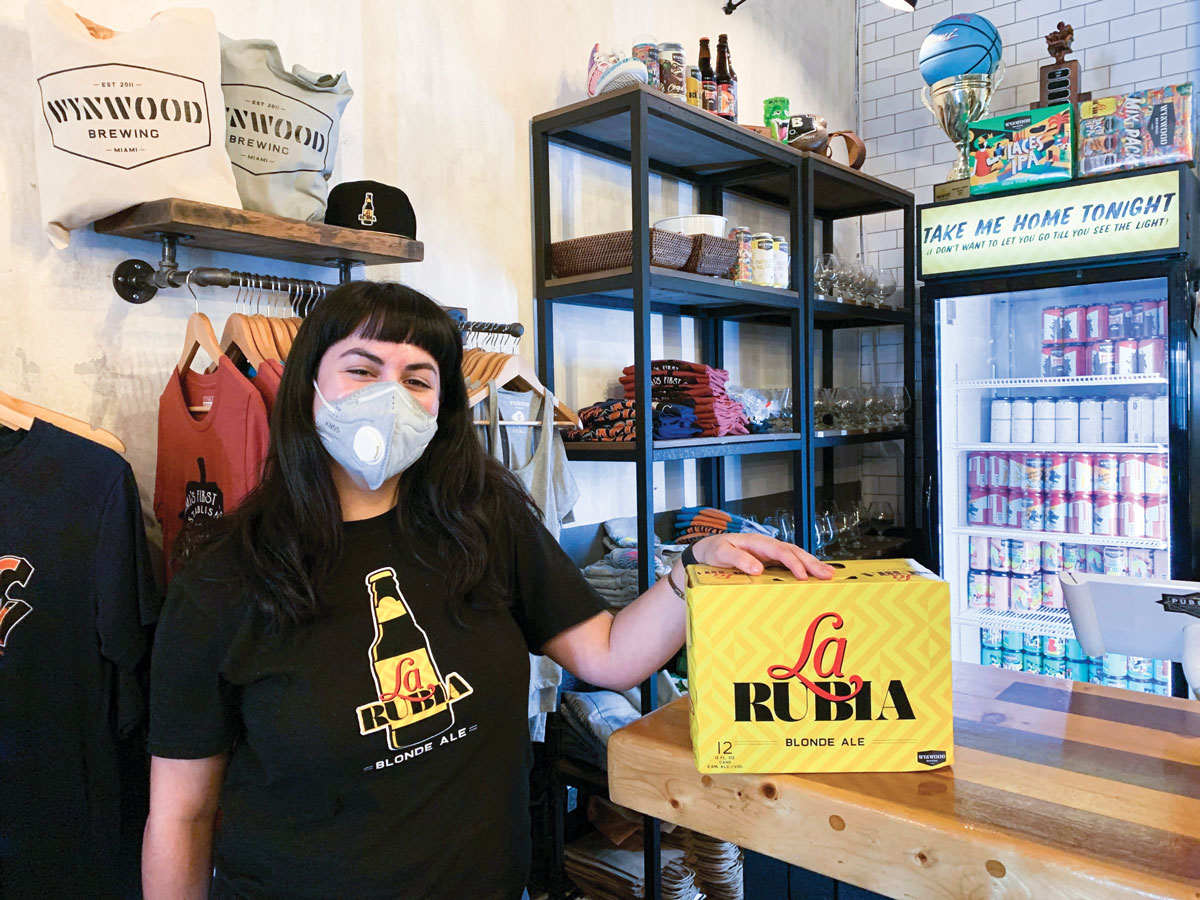The Best New Bar is Called ‘Home’
The most immediate impact of bars and restaurants closing was an end to draft beer. When restaurants and bars have kegs they can’t sell to anyone, this effect is felt all the way up the supply chain. For every beer tap in the market, there are likely six kegs in the supply chain: one keg on tap, one on backup, one at the wholesaler, one at the brewery, and one or two empty kegs in transit back to the brewery or ready to be filled. This means millions of kegs with no homes, and billions of dollars of beer with no place to go.
Unlike wine or liquor, beer is perishable. Most kegs are good for 3-6 months. From the breweries to the retailers, the entire industry had to move in reverse. How do full kegs get returned to the wholesaler? How does the beer get dumped? Where? By who? Who’s financially responsible? The entire industry has been working to figure it out. Most distributors will work with their brewery partners to split the cost of the beer. Some retailers will be pouring old beer, not ideal. As restaurants and bars reopen, when should breweries start to make draft beer again? For months, nobody has bought any kegs. Then, as establishments reopen, sales shoot up overnight. How do you forecast? The draft beer business is a mess right now, and it will be a long time before the machine is running smoothly. For the smaller breweries who mainly offer draft beer, this has been debilitating to their business. How are small craft breweries coping?
Craft beer has always been about innovation. In difficult times, scrappy breweries can react quickly and change their business model overnight. Taprooms, a main source of revenue, had to close, so what did breweries do? Curbside pickup. Thousands of breweries launched online ordering platforms and implemented curbside pickup while instituting new safety protocols to eliminate human contact. The government lifted some restrictions, allowing breweries to temporarily do delivery. Many have taken this opportunity to launch full delivery programs and fleets, bringing beer to people’s doorsteps. Breweries without bottling or canning lines have turned to mobile canning companies to package their product. Consumers now have access to unique, one-time offerings directly from their breweries.
Helping Those Out-of-Work
Many breweries have taken this opportunity to give back. Funds were set up to support service industry members, bartenders and servers out of work. Sam Adams started the Restaurant Strong Fund, partnering with The Greg Hill Foundation to offer $1,000 to restaurant workers in 20 states who were affected by COVID-19. Constellation Brands, owner of Funky Buddha Brewery, and AB InBev’s Modelo Especial pledged $500,000 to the charity of the United States Bartenders’ Guild. New Belgium Brewing started the Bar & Restaurant Relief Fund with an initial donation of $50,000 and a commitment to match donations up to an additional $50,000 to support workers in need in the food and beverage industry. Their Asheville operation also partnered with other local breweries, including Bhramari, Dssolvr, Archetype, Twin Leaf and brewery suppliers White Labs yeast, Craft Malt and Riverbend Malt, to brew “Stay Home” IPA. One hundred percent of proceeds benefit the fund, which has raised over $230,000 to date.
Beer Sales Soar
People may not be drinking at bars and restaurants, but they are definitely drinking. In the past few months, off-premise beer sales (grocery stores, liquor stores, etc.) have skyrocketed. According to Nielsen data, off-premise alcohol sales were up close to 25 percent for 2020 with beer at 20.9% as of June 1. This may not sound like a lot. But for an entire industry, it’s huge. In stores, people started off buying beer like toilet paper, buying cases instead of six-packs. Although it’s slowed down from the beginning of the pandemic, consumers are still picking up a lot more beer to drink at home. Breweries with good distribution and packaged products have shifted their focus to keeping shelves stocked. Entire distributor and brewery sales teams who used to visit bars and restaurants to talk to managers shifted their focus to grocery stores, waking up at 5am to go merchandise. Alcohol delivery services are working feverishly as quarantined and social distancing individuals turned to Instacart, Drizly, Total Wine Delivery and other services to bring beer right to their doorstep.
Zoom Taproom
Nobody likes to drink alone. Like other industries, breweries have turned to technology to virtually connect. Virtual Happy Hours, Zoom Concerts, Live Instagram Meet-and-Greets and Video Interviews have become the new taproom. If you can’t have a beer with consumers at a bar or beer festival, why not bring the event to them?
We aren’t out of the woods yet, and let’s be honest: COVID-19 isn’t the only cause for concern with political, climate and civil unrest all at the forefront. But I believe beer will always rise to the occasion. Brewers are resilient, creative and stubborn and often serve as the cornerstones for communities. Beer isn’t always the solution, but it’s good to know that the people behind the scenes are working hard to ensure you can have a beer when you might need it most. Cheers to looking ahead.





